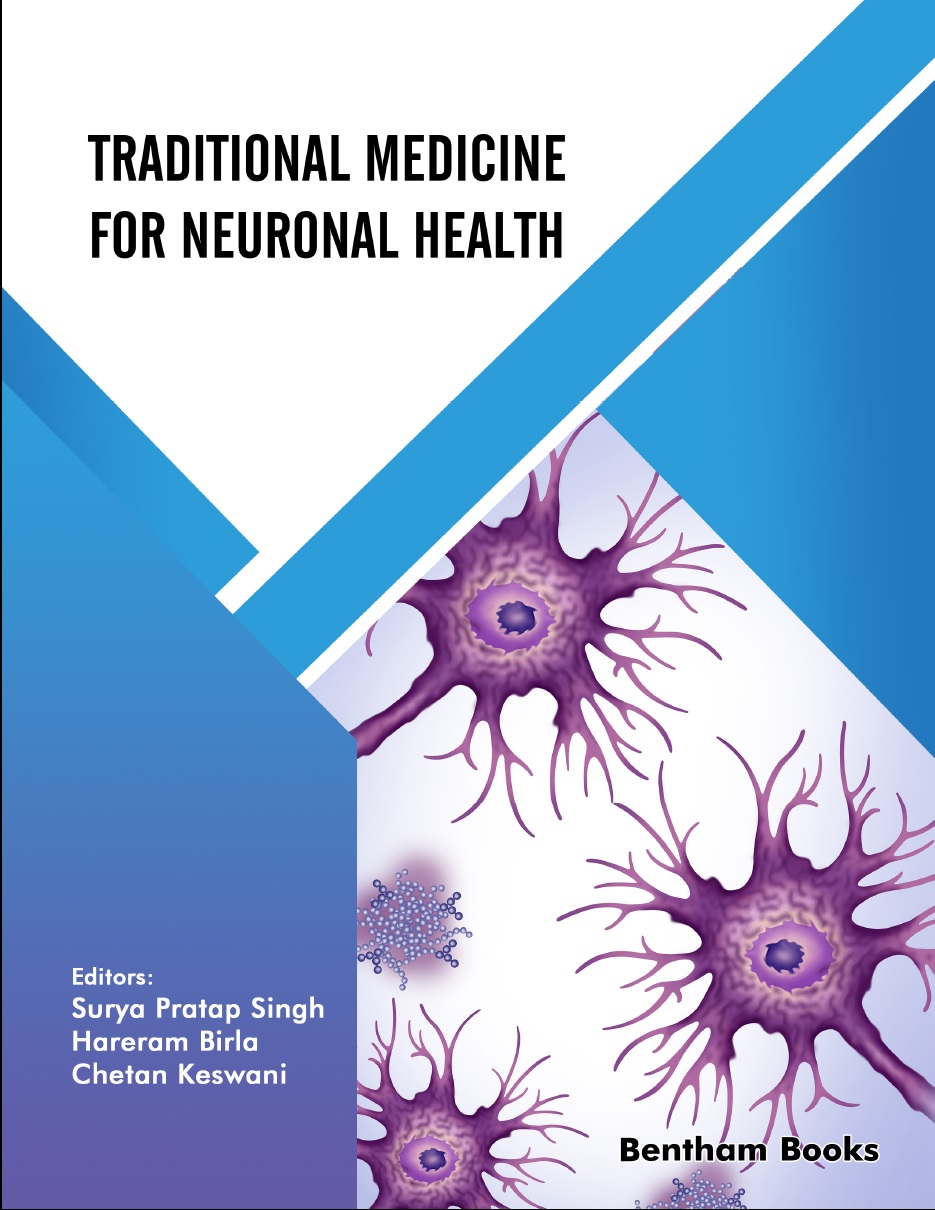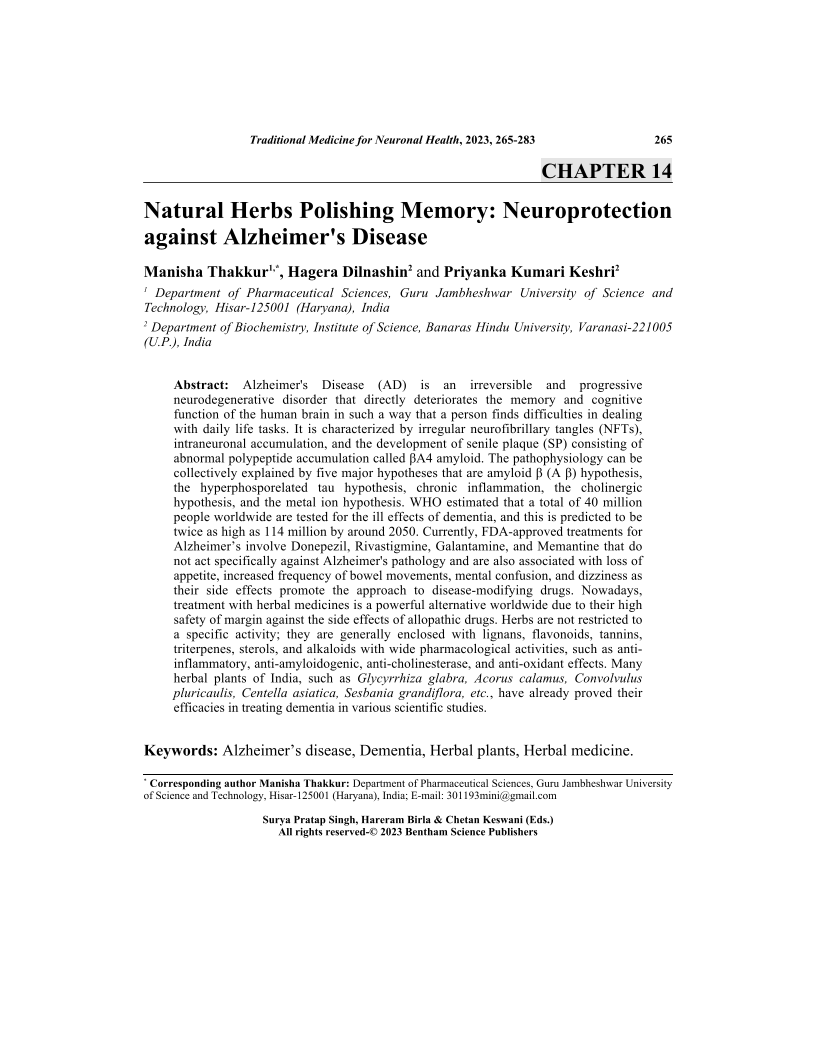Natural Herbs Polishing Memory: Neuroprotection against Alzheimer's Disease

- Authors: Manisha Thakkur1, Hagera Dilnashin2, Priyanka Kumari Keshri3
-
View Affiliations Hide Affiliations1 Department of Pharmaceutical Sciences, Guru Jambheshwar University of Science and Technology, Hisar 125001 (Haryana), India 2 Department of Biochemistry, Institute of Science, Banaras Hindu University, Varanasi-221005 (U.P.), India 3 Department of Biochemistry, Institute of Science, Banaras Hindu University, Varanasi-221005 (U.P.), India
- Source: Traditional Medicine for Neuronal Health , pp 265-283
- Publication Date: March 2023
- Language: English
Natural Herbs Polishing Memory: Neuroprotection against Alzheimer's Disease, Page 1 of 1
< Previous page | Next page > /docserver/preview/fulltext/9789815040197/chap14-1.gif
Alzheimer's Disease (AD) is an irreversible and progressive neurodegenerative disorder that directly deteriorates the memory and cognitive function of the human brain in such a way that a person finds difficulties in dealing with daily life tasks. It is characterized by irregular neurofibrillary tangles (NFTs), intraneuronal accumulation, and the development of senile plaque (SP) consisting of abnormal polypeptide accumulation called βA4 amyloid. The pathophysiology can be collectively explained by five major hypotheses that are amyloid β (A β) hypothesis, the hyperphosporelated tau hypothesis, chronic inflammation, the cholinergic hypothesis, and the metal ion hypothesis. WHO estimated that a total of 40 million people worldwide are tested for the ill effects of dementia, and this is predicted to be twice as high as 114 million by around 2050. Currently, FDA-approved treatments for Alzheimer’s involve Donepezil, Rivastigmine, Galantamine, and Memantine that do not act specifically against Alzheimer's pathology and are also associated with loss of appetite, increased frequency of bowel movements, mental confusion, and dizziness as their side effects promote the approach to disease-modifying drugs. Nowadays, treatment with herbal medicines is a powerful alternative worldwide due to their high safety of margin against the side effects of allopathic drugs. Herbs are not restricted to a specific activity; they are generally enclosed with lignans, flavonoids, tannins, triterpenes, sterols, and alkaloids with wide pharmacological activities, such as anti-inflammatory, anti-amyloidogenic, anti-cholinesterase, and anti-oxidant effects. Many herbal plants of India, such as Glycyrrhiza glabra, Acorus calamus, Convolvulus pluricaulis, Centella asiatica, Sesbania grandiflora, etc., have already proved their efficacies in treating dementia in various scientific studies. nbsp;
-
From This Site
/content/books/9789815040197.chap14dcterms_subject,pub_keyword-contentType:Journal -contentType:Figure -contentType:Table -contentType:SupplementaryData105

